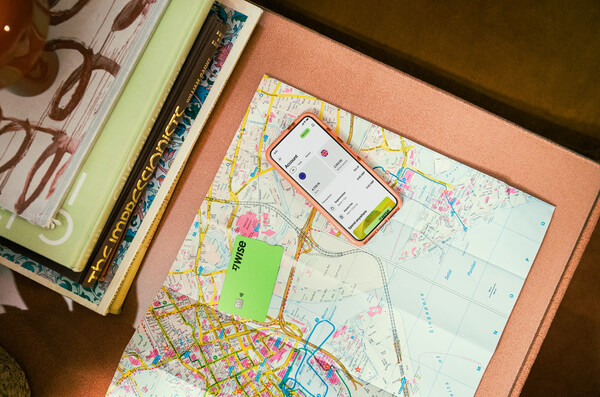
Is tap water in Croatia safe to drink? A traveller's guide
This is intended to serve as a general guide. Always check with official sources for the latest government and health advice.
Opting for tap water is often the most eco-friendly and cost-effective way to stay hydrated while traveling. But when you're in a new country, knowing if the tap water is safe is crucial to avoid any unexpected health risks. If you're headed to Croatia, you're likely wondering: is its tap water safe to drink?
The quick answer is yes. This guide will clearly explain why Croatia’s tap water is safe, and detail its quality to help you prepare for your trip. We’ll also introduce the Wise card, a useful travel companion to help you save on spending during your time there.
| Table of contents |
|---|
Is tap water safe to drink in Croatia?
Yes, tap water in Croatia is generally safe to drink directly from the tap according to the Official Gazette of the Republic of Croatia.1 Its quality meets stringent national and EU quality standards, as defined by the Ordinance on water for human consumption (Pravilnik o vodi za ljudsku potrošnju), which is directly based on the EU Drinking Water Directive.2
While the water is generally safe, especially in urban areas and tourist regions, travelers should be aware that on some smaller islands, bottled water may be recommended due to local infrastructure or source limitations. As a practical tip, always check if your specific tap is safe for drinking. Although the public water supply is reliable, older building plumbing or other disruptions could affect the water quality. It is important to note that a "boil water" advisory may be issued by authorities if there is a risk of harmful microorganisms in the water.
Understanding Croatia's water quality
The primary official government authorities responsible for tap water quality and regulation include the Ministry of Health (Ministarstvo zdravstva) and the Croatian Institute of Public Health (HZJZ). They oversee the implementation of national regulations and the monitoring of water quality. The local entities responsible for water supply are public water supply companies and county public health institutes, which are tasked with daily operations and enforcement of water quality standards. A multi-tiered monitoring system is in place, with public suppliers performing daily checks and the Croatian Institute of Public Health coordinating official state-level monitoring.3
Sources of Croatia's tap water
Croatia's tap water supply predominantly comes from groundwater sources, including springs and aquifers, with surface water from rivers and lakes also contributing.4 The country's karst geology means that groundwater is a particularly significant source for many regions. The water undergoes a multi-step treatment process that typically involves filtration and disinfection, primarily through chlorination. This process is supported by a rigorous monitoring regime, with frequent and systematic testing to ensure compliance with quality standards.5
Mineral content and taste of Croatia's tap water
The mineral content and hardness of Croatia's tap water vary by region due to local geology. Water is generally moderately hard to hard, ranging from 150 to 300 mg/L as CaCO3, with softer water found in some northern regions. The general taste profile is described as neutral, but a slight chlorine taste may be present in urban areas as a result of the disinfection process.6
Heading to Croatia? Maximise your EUR spending with the Wise Card
Staying hydrated is key to a great trip, and so is managing your travel budget wisely in Croatia. The Wise card is a simple way to save when you're spending internationally, be it on bottled water, food or shopping. You can spend in 150+ countries, including Croatia, at mid-market rate — basically the rate you see on Google. With no foreign transaction fees and low, transparent pricing, Wise usually gives you the best value for your money.

Simply create a Wise account for free, order a card and top-up to get started. Having a physical Wise card allows you to make chip and pin payments, as well as make some free ATM withdrawals each month for when you're in Croatia. You can get digital cards and add to your Google or Apple Pay wallet for instant use. Spend directly with the Wise account and let auto-conversion do the trick or convert in advance to EUR. You can hold and exchange 40+ currencies in your Wise account and spend the currencies you hold for free.
Wherever your travel takes you, the Wise card makes spending money abroad cheaper and easier.
This general advice does not take into account your objectives, financial circumstances or needs and you should consider if it is appropriate for you.
Please see Terms of Use and product availability for your region or visit Wise Fees & Pricing for the most up to date pricing and fee information.
FAQs
Do I need to boil tap water in Croatia to make it safe?
No, boiling tap water in Croatia is not necessary for the public water supply, as it is generally safe to drink directly from the tap and meets strict quality standards.¹ However, if you are on a smaller island or in a rural area, it is always a good idea to check local advisories.
How does the taste and quality of tap water differ within Croatia?
The taste and quality of water can vary by region due to different water sources and mineral content. Water is typically harder in areas with limestone and karst geology and softer in some northern regions, which can influence its mineral taste.6
Is the ice served in restaurants and bars in Croatia safe to consume?
Yes, the ice served in restaurants and bars is generally safe to consume, as it is made from the public water supply that is deemed safe to drink.¹
Why do some people in Croatia use water filters if the tap water is safe?
Some people in Croatia use water filters primarily for personal taste preference, such as to remove a faint chlorine taste, or due to concerns about the quality of older pipes in their buildings.
Sources:
- Vodoopskrba i odvodnja: Quality of Water
- UNEP: Law on Water for Human Consumption in Croatia
- Narodne Novine: Regulations on Drinking Water Quality
- Croatia.hr: Water - The Greatest Croatian Wealth
- Croatian Public Health Institute: Water Quality Report 2024
- Wassertipps: Map of Water Quality in Europe
*Please see terms of use and product availability for your region or visit Wise fees and pricing for the most up to date pricing and fee information.
This publication is provided for general information purposes and does not constitute legal, tax or other professional advice from Wise Payments Limited or its subsidiaries and its affiliates, and it is not intended as a substitute for obtaining advice from a financial advisor or any other professional.
We make no representations, warranties or guarantees, whether expressed or implied, that the content in the publication is accurate, complete or up to date.


